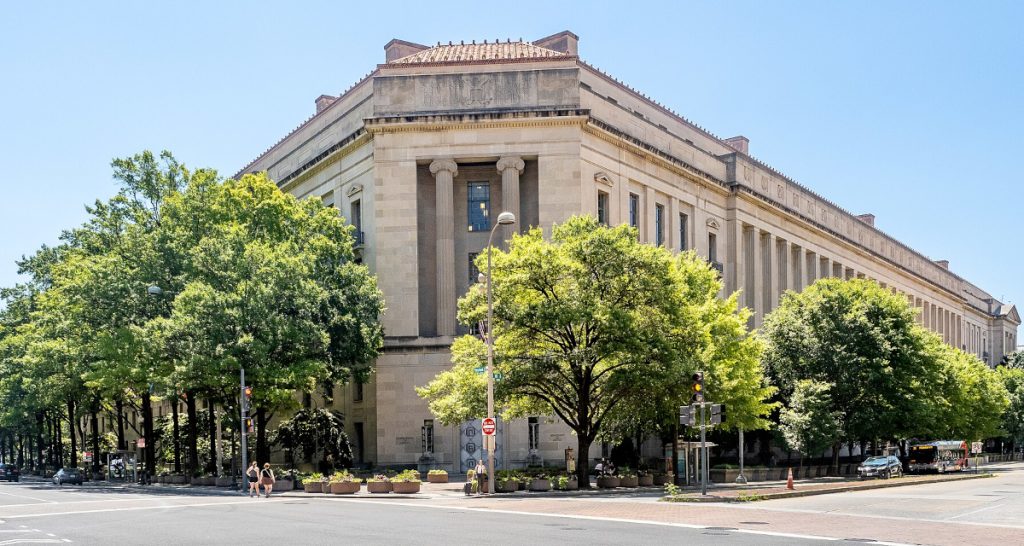Washington, D.C.’s Robert F. Kennedy Building, which serves as the DOJ headquarters. Photo Credit: ajay_suresh
As both Cox Communications and the major labels seek a Supreme Court review in their marathon legal battle, the nation’s highest court has asked the Justice Department to weigh in.
That request emerged as part of a Supreme Court order list yesterday, about three weeks after the internet service provider defendant submitted a reply brief.
As many know, this newest chapter in the years-long dispute stems from a relatively straightforward copyright complaint spearheaded by the majors, which maintain that Cox failed to adequately address certain customers’ alleged repeat infringement even after receiving the appropriate notices.
Cox has pushed back against the claims from the outset. But a jury slapped the ISP with a staggering $1 billion damages verdict near 2019’s end, and unsurprisingly, the defendant company moved to reduce and/or toss the monetary penalty.
Multiple twists, turns, and years later, the effort paid off for Cox in February 2024, when an appellate court determined that the ISP wasn’t actually liable for vicarious infringement. In doing so, the court further overturned the jury’s $1 billion verdict (as it had factored for alleged vicarious liability) and ordered a fresh trial to recalculate damages.
The majors promptly pursued a rehearing, expressing the belief that Cox should remain on the hook for the full $1 billion, while the ISP likewise sought a rehearing, albeit to address the elements upheld by the appellate court as well as adjacent liability questions.
“Rehearing is also warranted to decide whether a secondary infringer can be adjudged willful,” Cox Communications indicated in a filing, “exposing it to dramatically enhanced statutory damages, merely because it had knowledge of an internet user’s direct infringement.”
In the end, though, the appellate court decided against reviewing the ruling it had just made – setting the stage for Cox and the majors to try and take their arguments to the Supreme Court. Now, as mentioned, the latter has asked the DOJ (and specifically the solicitor general) to submit a brief.
“The Solicitor General is invited to file a brief in these cases expressing the views of the United States,” the concise Supreme Court order reads.
The comparatively little-discussed solicitor general’s office, the relevant Justice Department webpage reiterates, works “to supervise and conduct government litigation in the” Supreme Court – with essentially “all such litigation…channeled through” the office.
Of course, the “views” featured in the brief will prove important – especially given the suit’s significance from a precedent perspective. On this front, despite a couple settlements, several rightsholder-versus-ISP infringement showdowns are ongoing. The majors levied one such action over the summer against Verizon, which in September filed to dismiss the “legally deficient” complaint.

